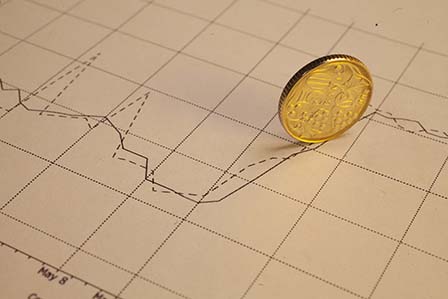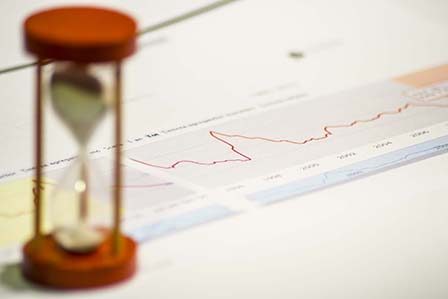Welcome to the official website of the National Bank of Moldova!
×
Do you have good eyesight and want to turn this tool off?
Do you have good eyesight and want to turn this tool off?
Schedule of reception of citizens by the Executive Board of the National Bank of Moldova.
The registration of applicants for an audience is carried out based on a written request on the subject addressed.
Anca Dragu, Governor
1st Wednesday of the month: 14.00-16.00.
Petru Rotaru, First Deputy Governor
2nd Wednesday of the month: 14.00-16.00.
Tatiana Ivanicichina, Deputy Governor
3rd Wednesday of the month: 14.00-16.00.
Constantin Șchendra, Deputy Governor
4th Wednesday of the month: 14.00-16.00.
Mihnea Constantinescu, Deputy Governor
5th Wednesday of the month: 14.00-16.00.
Welcome to the official website of the National Bank of Moldova!
If you want to send a message (question or suggestion) on-line, go to section "Feedback" from the main menu at the top of the website.
You can choose one of the most popular reports from the list:

National Bank and the members of its decision-making bodies shall be independent in exercising the tasks conferred upon them by law, and shall neither seek nor take instructions from public authorities or from any other authority.

In order to ensure and maintain price stability over the medium term, the National Bank’s aim will be to keep inflation (measured by Consumer Price Index) at the level of 5.0 percent annually with a possible deviation of ± 1.5 percentage points, considered to be optimal for growth and development of Moldova's economy over the medium-term.

Financial stability is achieved by strengthening the resilience of the financial system, limiting the contagion effect and reducing the accumulation of systemic risks, thus contributing to the sustainability of the financial sector and economic growth.

National Bank shall have the exclusive right to issue on the territory of the Republic of Moldova banknotes and coins as legal tender, as well as commemorative and jubilee banknotes and coins as legal tender and for numismatic purposes.

National Bank is exclusively responsible for the licencing, supervision and regulation of financial institutions activity.

National Bank of Moldova acts as banker and fiscal agent of the State and shall receive from state bodies economic and financial information and documents, which are necessary for carrying out its tasks.

National Bank of Moldova is an autonomous public legal entity and is responsible to the Parliament.

National Bank shall inform the public on the monetary policy strategy on the results of the macroeconomic analysis, the evolution of the financial market and on statistics, including with regard to monetary supply, crediting, balance of payments and the state of the foreign exchange market.

National Bank of Moldova is responsable for the compilation of the balance of payments, international investment position and the statistics of the external debt of the Republic of Moldova.
The website www.bnm.md prioritizes data security and uses cookies to enhance the browsing experience and user comfort. Accepting the use of cookies contributes to faster page loading and ensures the proper functioning of the information presentation modules. Refusing to use cookies may slow down the site’s loading speed and hinder smooth navigation between pages. For more details, please refer to the Cookie Usage Policy.
Configure your cookie preferences by category. Strictly necessary cookies cannot be disabled, as they are essential for the proper functioning of the website.
These cookies are fundamental to the correct operation of the website. They include session cookies used for load balancing and maintaining the application's state.
Cookies: cookiesession1, JSESSIONID
These cookies enable personalized features, such as font size preferences, interface state, and selection of desktop/mobile version.
Cookies: has_js, fontCookie, statistics_time, statistics_tooltip, bnm_coins_expansion, desktop_version
Such cookies help us understand how visitors interact with our site by collecting and reporting information anonymously.
Cookies: _ga, _gid, _gat, node_stat
These cookies store accessibility preferences, such as text size, contrast, cursor size, and animation settings.
Cookies: a11y_oversized_widget, a11y_animation, a11y_invert, a11y_contrast, a11y_dyslexic, a11y_cursor, a11y_factor
Inflation Report no.1, February 2013
In general, the influence of fuel price changes on inflation rate can be divided into three types of effects:
1. The direct effect - is directly related to the increase in fuel prices in the CPI basket.
2. Indirect effect - is related to changes in production costs (e.g., transport costs, agricultural work-related costs).
3. Second-round effects - arise from the increased cost of living. Thus, workers demand higher salaries to maintain the purchasing power of the disposable income.
It should be mentioned that the first two effects are seen in the short term, while the second-round effects are noticed in the medium term.
Here is a simple example that brings clarity to the above statements. If fuel prices rose by 10.0 percent and their share in the CPI basket is 0.05, therefore the cumulative weight of other products and services is of 0.95. At the same time, let’s suppose that the share of fuel in total production costs is of 20.0 percent. It should be mentioned that higher prices for other goods and services will depend on the ability of producers to substitute between fuels and other expenses. So, according to the abovementioned figures, we can determine the effect of a10.0 percent increase in fuel prices on total CPI.
The direct effect of this growth will be 0.5 percent (0.05 * 10% = 0.5%). At the same time, assuming that the substitution elasticity of producers with other expenditures is zero, then the indirect effect will be of 1.9 percent (0.2 * 10% * 0.95 = 1.9%). So, we can conclude that, based on the above calculations, an increase in fuel prices by 10.0 percent will generate a cumulative effect on the CPI of 2.4 percent (the sum of the direct and the indirect effect of 0.5% +1.9% = 2.4%).
1 Grigore Vieru Avenue,
MD-2005, Chisinau, Republic of Moldova.
© National Bank of Moldova
Terms of use
Cookie Usage Policy


